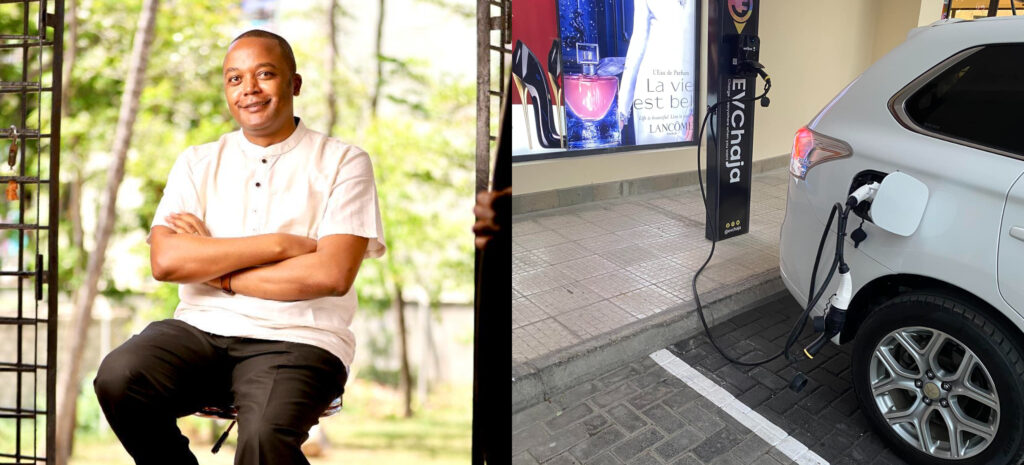As Kenyans are decrying the high-cost living and increased cost of fuel, some have come up to narrate their experiences with electric cars ,which they say it cheaper.
A Facebook user called Edward Munene narrates his electric car journey, which began with a Toyota Prius Hybrid car. Before the Prius, he used to spend about KES 12,000 ($120) per month on fuel, but as the Prius would easily do between 20 to 25 kilometres on a litre of fuel, fuel costs fell to about KES 4,000 ($40) a month.

Photos: Edward Munene (Facebook)
He adds that the move changed him, and he started reading, researching and looking for an electric car. Due to having very few charging ports installed publicly, he wanted a plug-in hybrid electric car.
“This is a car that you plug in and charge but it also has an engine that comes on when the batteries are depleted. I looked at the Nissan Leaf that is fully electric and has a range of between 117 Kilometers per full charge for older versions to 350 kilometers for newer models. This is available second hand for about kshs 1.5M for an import from Japan,” he wrote.
He went further to reveal that there is also the brand new Hyundai Kona, but the price range is a little high. He settled on the Mitsubishi Outlander PHEV because it gives an electric drive train for the local town running without the fear of being stuck when the charge runs out as it has a hybrid petrol engine also.

Photos: Edward Munene (Facebook)
“The car is a 4 WD SUV with the smarts and power comparable to any SUV in its range. A full charge of the car takes about 3 hours and consumes 5-kilowatt hour of electricity,” Munene said.
“From my calculations, a 1-kilowatt hour of electricity costs me KES 21 ($0.21). This means I spend KES 105 ($1.05) for a full charge. On a full charge, the car gives me approximately 70 kilometres of driving, and it therefore, costs me KES 105 ($1.05) to travel 70 kilometres in the comfort of my car,” he explains.
He explains that electricity is cheaper than fuel. In his opinion, electricity is cheaper even for cooking and cheaper than charcoal and gas. The car comes with a charger that plugs into a normal home socket and takes about 3 hours to charge.













































